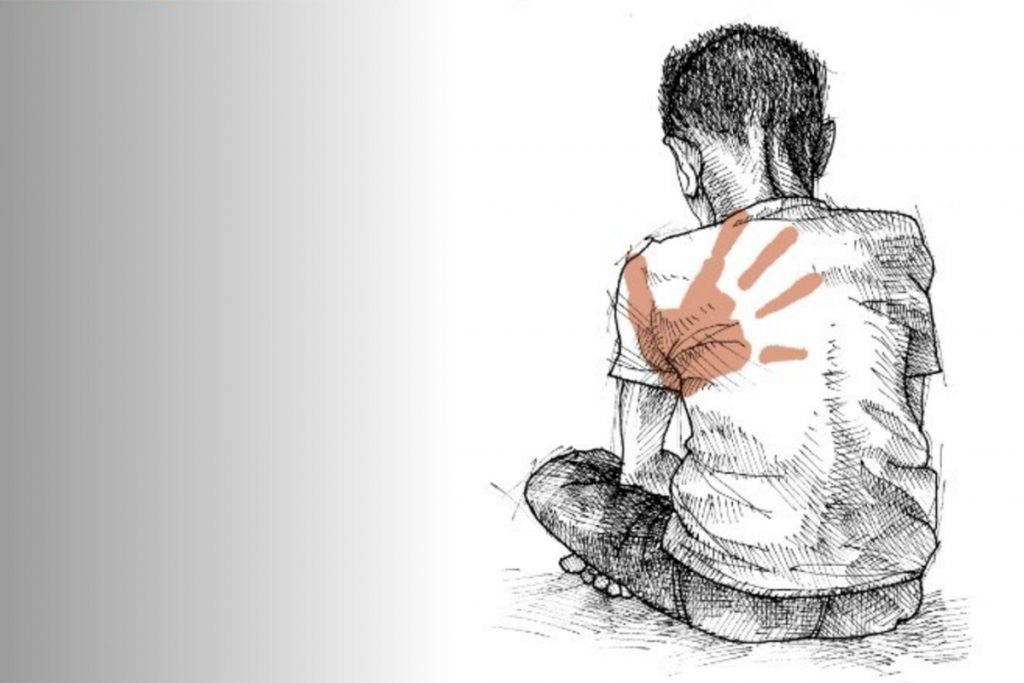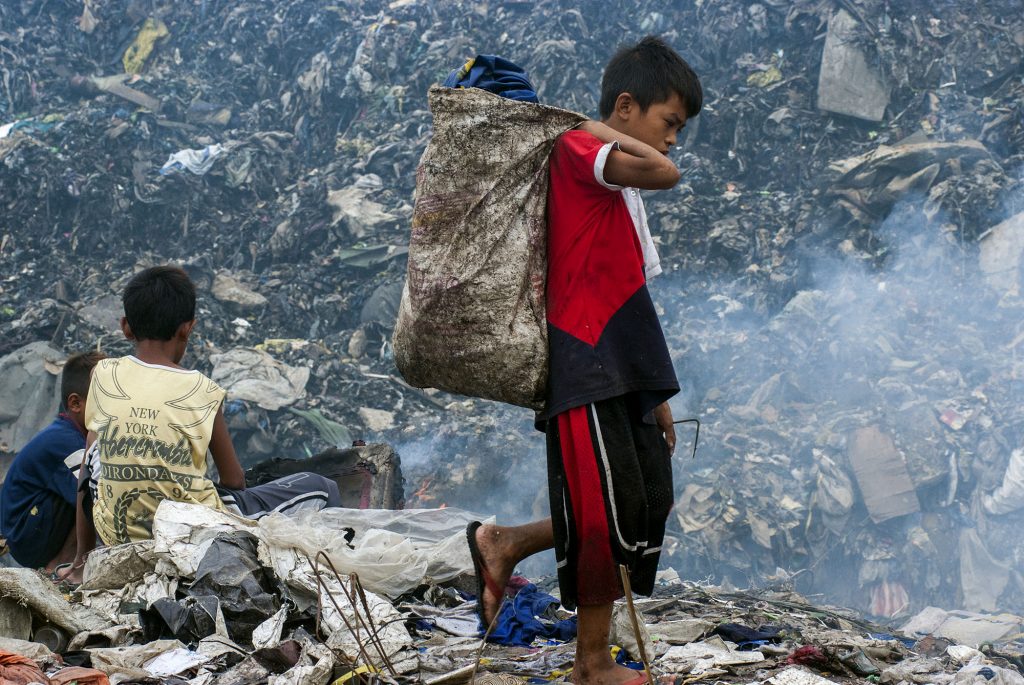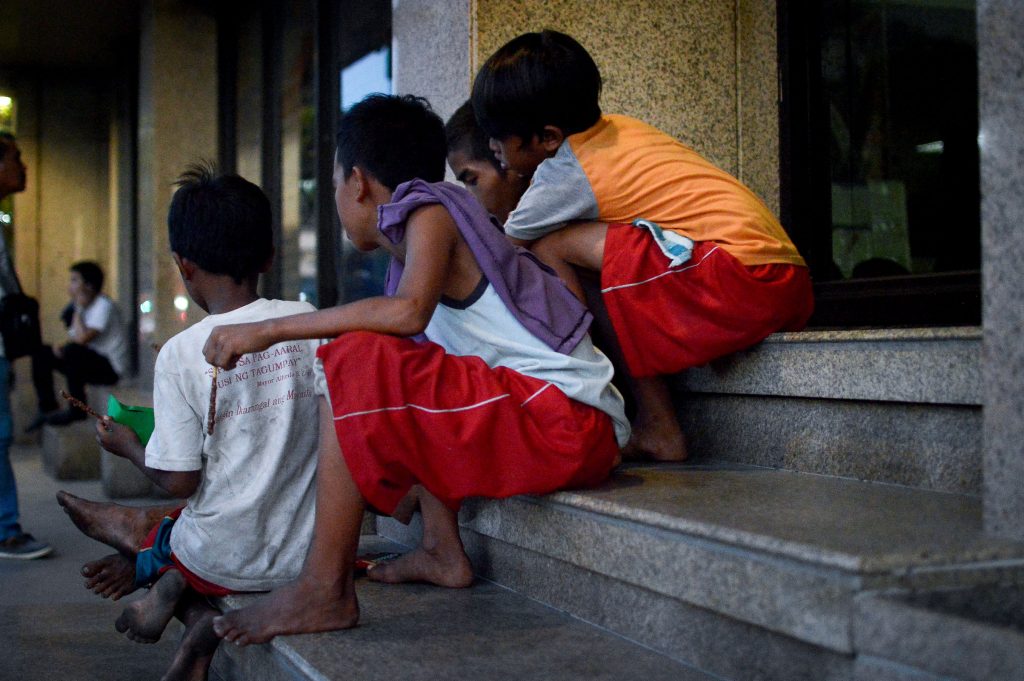
Young boys in the Philippines suffer from sexual abuse more than girls, and the victims are not reporting it.
A recent study on violence against children noted that sexual violence occurs more often on boys (28.7 percent) than girls (20.1%).
Take the case of Philip, not his real name, who worked as a male prostitute since he was 12 years old.
“I left home because my parents wanted me to stop attending school,” he told LiCAS.news.
“I wanted to continue my studies,” he said, “but my parents said my younger sister has to finish her studies first, and I have to help her.”
“I found it unfair because I was doing well with my grades,” said the boy.
For three days, Philip walked around Manila’s red light district collecting empty bottles, cans, and plastic to sell to have monty for food.
“It was easy,” he said. On his fifth night, however, a man approached the boy and offered him a place to stay.
“He told me that with him I can sleep safely and can have a shower,” recalled Philip.
“He told me that I will have to work for him in exchange of shelter …. I agreed because at that age I felt adventurous myself,” he said.
Since that night, Philip would have sex with anyone who would visit the man’s place. For his first night, Philip was paid US$4.
“I was 12 and it wasn’t scary at all,” he said. “I didn’t even feel a bit of hesitation,” said, adding that he knew of some boys his age who were already “very sexually active.”
After a year, Philip went home and continued his studies. Being a male prostitute became his profession.
“I would study in the morning and work in the evening. I even share my income to my parents,” he said.
When he turned 18 years old, he decided to stop.
“There were times that I was disgusted with myself. Imagine giving your body for strangers to use and enjoy,” he said.
He insisted, however, that he did not feel abused.
“It wasn’t abuse for me at all,” he said. “I was young, I needed money to live, and I agreed to take the opportunity to earn,” said Philip.

Blurred lines
Jen Cueva, a social worker for a non-government organization, said most boys don’t see what is being done to them as abuse.
“For them, it’s casual sex. For many it’s transactional sex,” she said.
“Transactional sex” is when children get something in return for their “service.”
Cueva said “there’s a blurry line” between consent and abuse, adding that “children, especially boys, usually deny the abuses because for them they had given their consent.”
“Some would even defend that they even enjoyed it,” she said.
Consent, in the context of abuse, always revolves around information.
Cueva explained that although boys agree to the act, they are still children and the adult who initiated the act would always have more information about it.
“What [the children] don’t know is that what they initially thought of just as a casual, adventurous experience is abuse and can lead to violence and illness,” she said.
The 2016 National Baseline Study on Violence against Children noted that one in four children in the Philippines suffer from any form of sexual violence in any setting.
The same study also noted that one in five children aged 13-17 experienced sexual violence, while one in 25 experienced rape during childhood.

Breaking the culture of silence
At the Center for the Prevention and Treatment of Child Sexual Abuse, boys, more than girls, would come seeking for help.
Zeny Rosales, executive director of the center, noted that Philippine laws “are very protective of girls.”
“But what about the boys?” she asked. She said that one factor is family stereotypes.
Mothers would usually say that boys “will be fine” while daughters “would have been a different story.”
The Philippines’ Revised Penal Code provides stiff penalties for rape, but Rosales said she has not heard of an abuse case involving a boy that is considered rape.
“The highest penalty the court usually grants is sexual assault, but if the abused is a girl, many cases have been ruled as rape,” said Rosales.
She said Philippine society usually sees boys as “offenders.”
“While this is true, we have to also shift our gaze to answering why is that so? We have to look deeper on to why they are like that and what can we do to prevent this,” she added.
She said it is time to “break the culture of silence” on the sexual abuse of boys.
“It is time we talk about sexual abuse affecting boys and about the taboos that hold us back in recognizing that boys need to be educated on many aspects of growing up,” said Rosales.
She said the culture of silence “will only allow the cycle of abuse and violence to continue and will put boys at higher risks.”
Partnership with Church
In 2019, Rosales’ center started a partnership with the Catholic Diocese of Novaliches to run Kalakbay, a center that offers face-to-face and online counseling for boys and men.
“It is a valuable and urgent partnership,” said Father Tony Labiao, rector and parish priest of the Good Shepherd Cathedral in the diocese.
The priest said that during the pandemic, where many lost their source of income, people, even children, would do whatever it takes to earn money.
Father Labiao said the diocese is “doing its best” to create a child-friendly community by coming up with a “child-friendly policy” although he admitted that the Philippine Catholic Church is “just starting” and is still “in the process of building awareness.”
“Many dioceses just talk a lot, but no action at all,” said the priest who also serves as the executive secretary of the social action arm of the Catholic Bishops’ Conference of the Philippines.
Now at 29, Philip is starting to have his own family, but still admits that the past stills comes back to him sometimes.
“While you were there, you won’t have any guilt feeling because you are earning easy money,” he said. “But I think it’s something that I regret now.”
Source: Licas Philippines
0 Comments